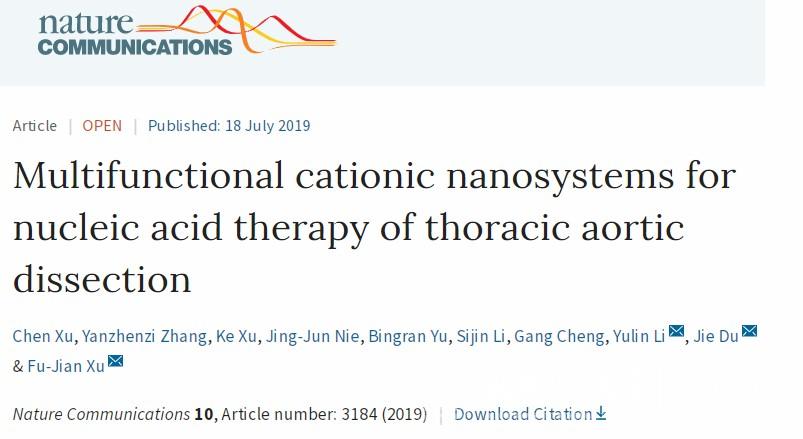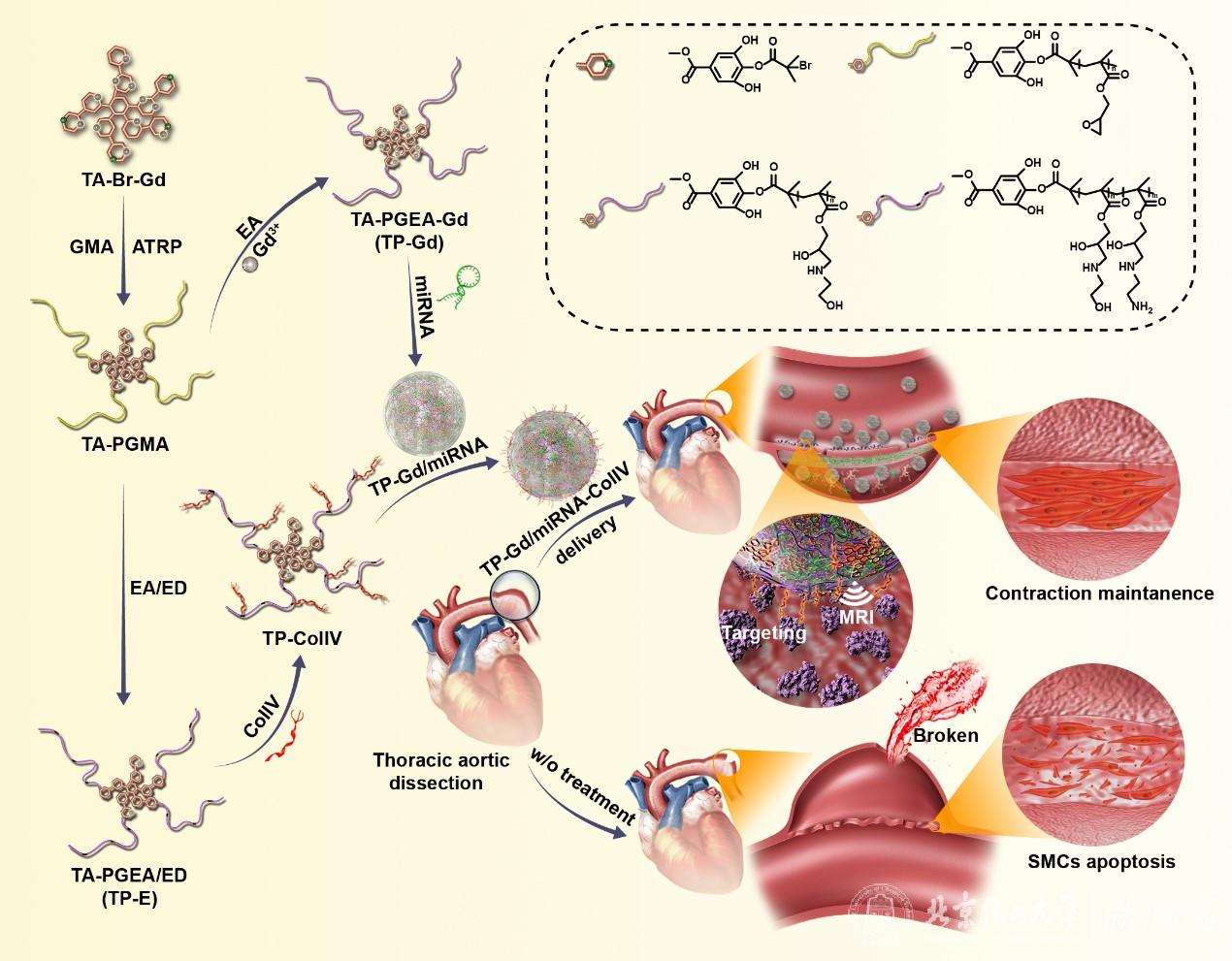Beijing University of Chemical Technology and Beijing Anzhen Hospital Affiliated to Capital Medical University jointly published academic research paper in Nature Communications
On July 18, professor Xu Fu-Jian (College of Materials Science and Engineering, Beijing University of Chemical Technology) and professor Du Jie (Beijing Institute of Heart, Lung, and Blood Vessel Diseases, Beijing Anzhen Hospital Affiliated to Capital Medical University) jointly published a research paper Multifunctional cationic nanosystems for nucleic acid therapy of thoracic aortic dissection in the internationally renowned journal Nature Communications. The two professors have long-term cooperation in the diagnosis and treatment of different cardiovascular diseases. The corresponding achievements have been published in influential journals, such as Advanced Materials, Advanced Science and Theranostics (Advanced Materials, 2016, 28, 7204-7212, Theranostics, 2018, 8, 437, Advanced Materials, 2018, 30, 1801570, Advanced Science, 2019, 6, 1900023,and Advanced Science, 2019, 6, 1900386). This article reports a novel targeted nucleic acid delivery nanosystem for the theranostics of thoracic aortic dissection (TAD). This nanosystem can not only effectively reduce the occurrence of TAD by delivering miR-145, but also non-invasively monitor and evaluate the treatment process of TAD. Original link: https://www.nature.com/articles/s41467-019-11068-1 (Nat. Commun. 2019, 10, 3184)

Thoracic aortic dissection (TAD) is an aggressive vascular disease which requires early diagnosis and effective treatment. However, due to the particular vascular structure and narrowness of lesion location, there are no effective delivery systems for the therapy of TAD. Based on the previous research (Theranostics. 2018, 8, 437), they originally proposed a multifunctional delivery nanosystem (TP-Gd/miRNA-ColIV). This nanosystem, composed of gadolinium-chelated tannic acid (TA), low-toxic cationic PGEA (ethanolamine-aminated poly(glycidyl methacrylate)) and type IV collagen targeted peptide (ColIV), is structurally designed based on atom transfer radical polymerization (ATRP) and electrostatic assembly for targeted nucleic acid therapy, early diagnosis and noninvasive monitoring. Experimental data proves that after treatment, the survival ratio of mice increases to more than 80%, and the incidence of TAD decreases to less than 20%. This research is of great significance for the clinical diagnosis and treatment of TAD.

Xu Chen (Ph.D student, College of Materials Science and Engineering, Beijing University of Chemical Technology) and Zhang Yanzhenzi (Master student, Beijing Institute of Heart, Lung, and Blood Vessel Diseases, Beijing Anzhen Hospital Affiliated to Capital Medical University) are co-authors of this article. Professor Xu Fu-Jian, Professor Li Yulin and Professor Du Jie are co-corresponding authors. This work was supported in part by the National Natural Science Foundation of China and the Fundamental Research Funds for the Central Universities.
